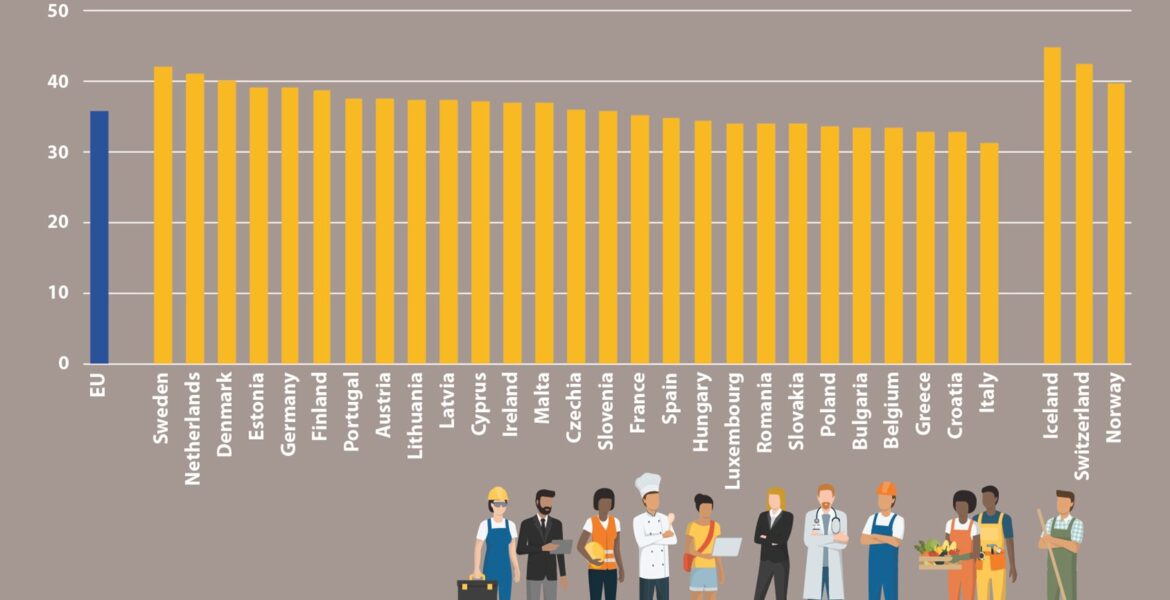The expected average duration of working life for 15-year olds in Greece is 32.8 years making it the second lowest in the European Union along with Croatia, whilst Italy registers the lowest at 31.2 years according to figures released yesterday by Eurostat.
By contrast Cyprus registers much higher at 37.1 years, whilst Sweden, the Netherlands and Denmark had the longest expected duration of working life in 2020 (42.0, 41.0 and 40.0 years respectively). These were the only three EU Member States where the expected duration of working life was 40 years or above. These Member States were followed by Estonia (39.2 years), Germany (39.1 years) and Finland (38.8 years).
According to Eurostat, in 2020 the expected average duration of working life for 15-year olds was 35.7 years, 0.2 years less than the average for 2019. This is the first time since 2000 that the expected average duration of working life has declined.
The number of years that people can expect to be in the labour force (employed or unemployed) during their life course has also been impacted by the COVID-19 crisis. Among others, people who would have been available to work and would have sought employment, may have given up their search due to low return expectations, and consequently be outside the labour force, reducing the expected duration of working life.
As regards the gender gap, it diminished slowly but steadily at EU level between 2000 to 2020; from 7.1 years in 2000 to 4.8 years in 2020, while the expected working life for women increased by 4.5 years, for men it rose by just 2.2 years over the same period.
RELATED: Over 1 million Greeks unemployed in April, 570,000 jobless for 12 months - Greek City Times

